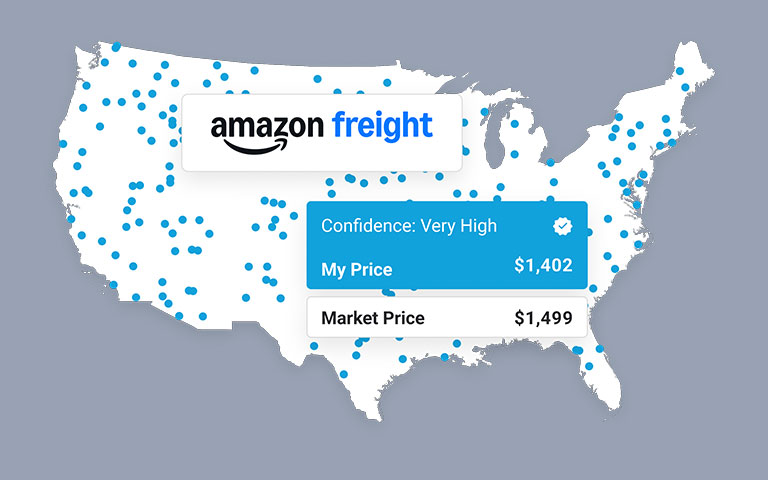Mental Health & the Supply Chain’s Dark Side

As we observe Mental Health Awareness Month, it is important to focus on the mental health challenges that workers everywhere face — and sadly it feels as though the supply chain industry has a long way to go. From the transportation managers to the port workers, the people who keep supply chains running are critical to the functioning of our society and economy, yet their work is often demanding, exhausting, risky, and underappreciated. Notorious for its high-pressure work environment, long hours, and often hazardous working conditions, the challenges of working in the supply chain industry can often lead to serious mental health issues that can affect workers at all levels.
No matter what role a person finds themselves playing in the task of keeping the economy moving, issues and concerns around safety, labor practices, worker exploitation, and displacement (and often have) impacted nearly everyone in some way.
In order to overcome the issues that regularly impact their mental health, we must first be able to identify and acknowledge the issues when they happen, so that we can work together as a society to create a supportive environment for all workers in the supply chain industry and ensure that their mental health needs are met.
Safety Concerns and the Lack Thereof
Have you ever had to deal with a stressful or dangerous situation in the workplace? Remember how anxious or scared you felt at the time? Now, imagine feeling that way for weeks, months, or even years — that’s what’s known as Post-Traumatic Stress Disorder (PTSD), and it's more common than you might think. And with symptoms being particularly common in individuals who have witnessed or been involved in a violent road accident, it can be a serious threat to truck drivers in particular.
Truck drivers are at an increased risk of experiencing fatigue due to long hours spent on the road, as well as high levels of stress from traffic congestion, adverse weather conditions, and tight deadlines, so it’s no wonder that truck drivers experience high levels of anxiety, depression, and — of course — PTSD. And given that around a third or more of truckers may be involved in a violent road accident during their careers, with the National Highway Traffic Safety Administration reporting 439,206 police-reported large truck accidents in 2020, (4,842 involving fatalities, and 106,902 causing injuries,) the risk of the mental health of a driver being impacted is hard to ignore — and yet many do ignore it.
Of course, truck drivers are not the only ones in the transportation industry who regularly have their safety concerns brushed aside. Warehouse workers, who handle heavy loads and operate machinery, can also suffer injuries that lead to physical and emotional trauma. For instance, a warehouse worker who suffered a back injury may experience anxiety and depression as they struggle with the long-term consequences of their injury. Similarly, port workers who are responsible for loading and unloading cargo from ships are exposed to significant safety risks, including accidents and injuries.
Overworked (and underpaid) employees
The transportation industry is sadly notorious for poor labor practices, including the misclassification of everyone from truck drivers to warehouse workers as independent contractors, which denies them job security, benefits, and protections afforded to traditional employees. The long hours and lack of benefits and job security that follow this misclassification can lead to financial stress, anxiety, and depression, which in turn can wreak havoc on a person’s mental health.
Furthermore, drivers who are classified as independent contractors are often responsible for covering their expenses, such as fuel, repairs, and maintenance, which can add to their financial stress. This can lead to a high turnover rate in the industry — and could very well be a contributing factor to the current driver shortage — as workers seek better working conditions and higher pay.
Of course, poor labor practices in the transportation industry aren’t limited to those working outside an office setting, and can impact workers at all levels of the supply chain. Considering the expectations and workload that are often placed on transportation managers and others who find themselves in charge of a regularly underresourced department that’s tasked with keeping dozens, if not hundreds of shipments moving smoothly (while maintaining a strict budget), stress and burnout can have a serious impact on these workers as well.
Worker Exploitation and the Abuse of Power
When most of us think of ‘worker exploitation’ we think of people who find themselves lured in with glowing promises before being entrapped in a dangerous or abusive position with no easy way out. Unfortunately, this is something that actually does happen within the industry, with some trucking companies found to have been involved in these predatory practices by luring desperate or foreign workers in with the promise of good pay and benefits, but instead forcing them into debt, working them past exhaustion, and leaving them destitute.
But even without such extreme examples, drivers are also often subjected to long hours, low wages, and other abuses, such as being forced to work without breaks or to falsify their logs to meet unrealistic delivery schedules. Such exploitation can result in drivers feeling trapped in their jobs, experiencing stress, anxiety, and depression, and becoming more vulnerable to accidents on the road.
Worker exploitation in the transportation industry can have devastating consequences for all workers, including those in positions of power, such as transportation managers. For example, if a transportation manager is aware that the company they work for engages in labor abuses, they may suffer from ethical dilemmas that impact their mental health, knowing that by calling out the exploitation they will likely lose their position and could find themselves blackballed by their superiors before their actions could even have any effect. Similarly, warehouse workers who are subjected to long hours and inadequate pay may experience emotional and physical exhaustion, leading to depression and anxiety.
The Ever Lurking Fear of Displacement
Technology and automation are rapidly changing the transportation industry, with the development of autonomous trucks and other technological innovations, causing concerns among workers about job displacement. The adoption of these technologies has the potential to significantly reduce the amount of time it takes to complete tasks manually, however, it also raises concerns about reducing the number of workers a company needs, leading to anxiety and stress among those who now find themselves worried about the future of their careers.
Even in cases where automation doesn’t reduce the number of workers required, the use of such technology and automation can result in previously ‘skilled workers’ being reduced to ‘button pushers’, meaning lower wages and benefits as well as significantly impacted job satisfaction and decreased pride in the vital role that they previously held, all of which can negatively impact their mental health.
The impact of technology and automation on mental health can affect workers in different positions within the supply chain industry. For example, transportation managers who oversee automated systems may experience job insecurity as their positions become redundant, while also resulting in increased feelings of isolation, depression, and decreased job satisfaction as tight-knit teams are required to work remotely or in separate locations. Warehouse workers who find themselves replaced by automation may experience financial stress and anxiety as they struggle to find new employment. Truck drivers may also be concerned about the impact of autonomous vehicles on their jobs and the future of their careers.
What’s Next?
The transportation industry has more than its share of challenges that can negatively impact the safety and security of the mental health of those who work in it. From safety concerns and poor labor practices to worker exploitation and the impact of technology and automation, these issues can lead to PTSD, stress, anxiety, depression, and countless other mental health issues.
At Shipwell, we understand the importance of prioritizing mental health across the supply chain. We believe that our success as a company is directly tied to the well-being of our employees and those in the industries that we serve. So while we are committed to providing a safe and supportive work environment for our employees, we are equally committed to extending that support to everyone in the supply chain industry.
If you or someone you know is struggling with mental health issues related to the transportation industry, there are resources available to help:
National Alliance on Mental Illness (NAMI):
NAMI is the largest mental health organization in the United States. They offer education, advocacy, and support for individuals living with mental illness and their families. They provide a variety of resources such as support groups, mental health education, and advocacy programs to help individuals find the support they need.
Substance Abuse and Mental Health Services Administration (SAMHSA):
SAMHSA is a government agency that offers a confidential and anonymous behavioral health treatment referral service. They provide information and resources on mental health and substance abuse treatment options, as well as crisis support services for individuals in need.
Occupational Safety and Health Administration (OSHA):
OSHA is a government agency that provides resources and information on workplace safety and health. They offer guidelines and regulations to help prevent workplace injuries and illnesses, as well as resources on mental health in the workplace.
American Trucking Associations (ATA):
The ATA is the largest national trade association for the trucking industry. They provide resources and advocacy for trucking industry workers, including safety and wellness programs, mental health resources, and education on issues related to the trucking industry.
Department of Justice — Civil Rights Division:
The Civil Rights Division of the Department of Justice works to uphold the civil and constitutional rights of all persons in the United States, particularly some of the most vulnerable members of our society, and prohibits discrimination on the basis of race, color, sex, gender identity, and more. If you feel your workplace has violated your rights, you can find resources to submit a report on their website.
The National Suicide Prevention Lifeline:
The National Suicide Prevention Lifeline is a national network of local crisis centers that provides free and confidential emotional support to people in emotional or suicidal distress 24 hours a day, 7 days a week. Committed to improving crisis services and advancing suicide prevention, they also provide resources for empowering individuals, advancing professional best practices, and building awareness on their website. To speak directly with someone who can help you or someone you know during a crisis, call or text them anytime at 988 or 1-800-273-8255.
We encourage everyone in the supply chain industry to prioritize their mental health and well-being. Remember, it's okay to ask for help. By shining a light on the darker aspects of the supply chain industry and encouraging one another to support and applaud all members of the transportation industry who seek to prioritize their mental health, together, we can work towards a safer and healthier industry for all.


.svg)








